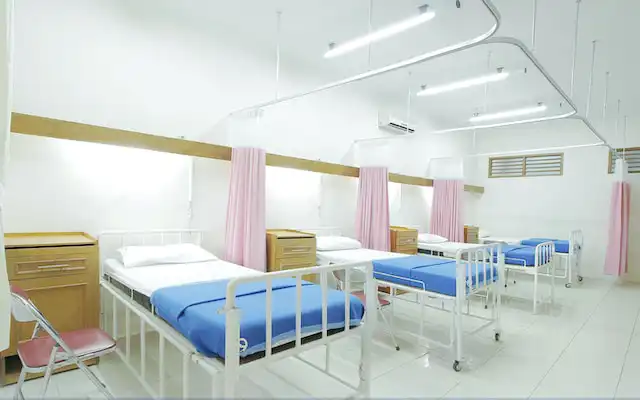
Saudi Arabia Education Industry Outlook to 2022
By Higher Education, K-12 Education, E-Learning, Vocational Training and Test-Preparation Education
Region:Middle East
Product Code:KR636
May 2018
170
About the Report
Updated Report:-
Ken Research announced its latest publication on "Saudi Arabia Education Industry Outlook to 2022 - By Higher Education, K-12 Education, E-Learning, Vocational Training and Test-Preparation Education" provides a comprehensive analysis on focusing on segments such as K-12 Education sector, Higher education, Vocational and technical training, E-Learning and Test Prep Sector. Detailed comparative analysis of major players in education industry has also been provided. Various marketing analysis factors such as trends and developments and SWOT analysis are also added in the study. The future analysis of the overall Saudi Arabia Education Industry has also been discussed along with recommendations from analyst view.
The stakeholders of this report include education institutes, schools, universities, training centers, companies involved in research, teachers and students in Saudi Arabia and the new entrants and venture capitalists who wish to invest in education industry in future.

Saudi Arabia Education Industry Overview: Saudi Arabia has been the largest market for education services in the Gulf Cooperation Council (GCC) region and accounted for growing number of total students’ enrollments in the GCC K-12 education system. Strong government support over the past few years has led to the continuous growth of education sector by inviting private players to enter the space. The three major organizations that oversee the operations of education market players in Saudi Arabia are the Ministry of Education, the Ministry of Higher Education, and the Technical and Vocational Training Corporation (TVTC).
The education system in the Kingdom is as per the Education Policy Document, which was issued by the Saudi Council of Ministers in 1969. Several organizations of the government also function together to regulate and enforce the laws pertaining to the education system in the country.
Saudi Arabia Education Industry Size: The in the Kingdom of Saudi Arabia inclined at a double digit CAGR during the period 2012-2017. One of the major reasons which boosted the industry revenues during 2011-2013 was the extension of King Abdullah Scholarship Program (KASP) in 2012, which inclined the number of enrollments to K-12 schools.
Saudi Arabia K-12 Education Market: The K-12 education industry of Saudi Arabia, in terms of revenues, has inclined at a double digit CAGR during the period 2012-2017. The extension of King Abdullah Scholarship Program (KASP) during 2012 encouraged the number of admissions to K-12 schools, as the most deserving students with distinguished academic records were offered scholarships to study in the world’s best universities. This raised the demand for schools in the country, thereby adding to the revenues of the industry.
By Type of Schools (Public and Private): The overall K-12 education industry in the Kingdom of Saudi Arabia has been majorly captured by the public schools operating in the country. There were over 24,000 public schools in the country by 2017. The growing demand for better quality education in the country has made private players to tap this sector over the years.
Competition Assessment in K-12 Education Sector: The K-12 education industry in the Kingdom has been dominated by the existence of public schools to boost the education sector of the country. Government schools focused on providing better quality education to compete with the private and international schools in Saudi Arabia. Private schools in the space compete in terms of offering quality education at various fee structures.
Saudi Arabia Higher Education Industry: The of the Kingdom inclined at a single digit CAGR during the period 2012-2017. The establishment of new universities due to the increased investments in the education sector was the key contributor to the augmented revenues generated by the market players
By Type of Universities (Government, Private and Other Universities): Government universities in the Kingdom of Saudi Arabia witnessed the maximum number of enrollments during 2017. King Faisal University, King Abdulaziz University, Imam Muhammad Bin Saud Islamic University and Umm Al Qura University were the top government universities with most number of students pursuing post-graduation, bachelors and other diploma courses from these universities in the country during the academic session of 2017. Private universities in Saudi Arabia offered almost similar number of courses and subjects to the students pursuing higher education in the country.
By Academic Degree (Bachelor’s, Average Diploma and Postgraduate): Since, bachelor’s degree is the first step to higher education; this segment has witnessed the most number of enrollments, constituting more than 50% to the pie of 2017 academic session. More than 50% of the overall students who pursued higher education were enrolled to average diploma courses for the academic session of 2017. Universities offering post- graduate degrees witnessed the least number of enrollments during 2017, constituting less than 50% of the overall students continuing higher education in Saudi Arabia.
By Field of Study: General courses on business and management helped the students in getting industrial knowledge along with exposing them to real life cases in the business world. The traditional course in the area of humanities was also considered as the top priority courses during 2017. Government institutes catered to most of the students enrolling to humanities course, which involved degrees in history, psychology, sociology and philosophy.
Competition Assessment in Higher Education Sector: With more number of universities getting included in the list of top universities in the Arab region, the higher education industry has witnessed stiff competition overtime. Efforts of the government to enhance the importance of pursuing higher education have made the players competent enough to offer quality education by hiring experienced faculty. Private universities in the Kingdom compete on grounds of providing education through highly qualified academicians at varied fee structures
Saudi Arabia Vocational and Technical Training Industry: Emergence of Vocational and Technical Training: Saudi Arabia has been continuously working on improving its education system by inculcating the importance of learning with better quality services. Traditionally, the technical and in the Kingdom was distributed between three governmental authorities.
The vocational and technical training industry in the Kingdom of Saudi Arabia inclined from over 200 thousand enrollments during 2011 at a double digit CAGR during the period.
Competition Assessment in Vocational and Technical Training Industry: The rising awareness about skilled and technical courses in the Kingdom has resulted in stiff competition amongst the players operating in vocational and technical training industry. Offering advanced training sessions through the support of strategic tie-ups with private entities has led to the expansion of vocational centers headed by the government in the country.
Saudi Arabia E-Learning Industry: The e-learning industry in the Kingdom of Saudi Arabia inclined at a robust double digit CAGR during the period 2011-2017. The need for adoption and implementation of e-learning systems in education sector of the country was recognized to reduce the high unemployment rate of 5.8% during 2011. This led to the entrance of online education market players in the space which had an opportunity to cater the ready customer base.
By End Users (K-12 Schools, Higher Education Colleges, Corporate and Government Bodies and Others): Adoption of e-learning in higher education colleges contributed the majority share to the overall industry revenues in 2017. E-learning not only helped the authorities in getting access to modern curriculum, but also assisted the students in learning about various other courses that were not offered in the colleges.
The increasing numbers of K-12 schools in the Kingdom of Saudi Arabia were the second largest end users of e-learning technology during 2017. K-12 schools held the share in the revenues generated by the industry through various end-customers during 2017.
By Types of Services (Content Services and Technology Services): Content services contributed a dominant share to the overall revenues generated by e-learning industry in the Kingdom during 2017. Content services were majorly demanded by the users in educational sector, wherein improvised and advanced instructional content was offered to uplift the public sector education in the country.
Technology services, which typically include learning management systems (LMS), smart classes, and smart authoring tools, constituted in the overall revenues generated by the players operating in e-learning industry in Saudi Arabia.
Competition Assessment in Vocational and Technical Training Industry: The e-learning industry has witnessed rising number of players entering the space with various kinds of educational services for students and professionals in the Kingdom. Introduction of modern curriculum of various universities on a single portal made market players have an edge in stiff competition prevailing in the industry.
Saudi Arabia Test Preparation Industry Segmentation: The focus of majority of the institutes is on training the students for GMAT, GRE, SAT, IELTS and TOEFL. This is due to the changing preferences of the people to shift abroad for continuing their education. The test preparation industry in Saudi Arabia is still in its growing stage and is dominated by the private sector establishments of both local and global players operating in the space.
By Type of Tests (SAT, IELTS, GRE, TOEFL and GMAT): There were over 2,000 students enrolling to undertake SAT in 2017. Overall enrollments for SAT contributed least share to the industry revenues in 2017. The test preparation industry noticed a contribution of to the overall revenues from IELTS preparation classes in 2017. Students in the country enrolled themselves for TOEFL during 2017.
Saudi Arabia Education Industry Future Outlook and Projections: The Saudi Arabian education industry is projected to augment to 2022, registering a single digit CAGR during the period 2017-2022. The allocation of funds to education sector of the country in the 2017 annual budget is expected to assist in the development of education industry during the outlook period, thus leading to the growth of all sectors. The expansion of the Colleges of Excellence (CoE) by way of offering colleges by 2020 for vocational training programs is projected to drive the overall industry revenues due to rising demand for training and technical courses in the Kingdom.
Key Topics Covered in the Report:
- Saudi Arabia Education Industry Size by Revenue
- Market Segmentation - By Sectors (Higher Education, K-12 Education, Vocational And Technical Training, E-Learning And Test-Preparation Education)
- Saudi Arabia K-12 Education Industry Size, Segmentation, Trends and Developments, Competitive Landscape, and Future Outlook
- Saudi Arabia Higher Education Industry Size, Segmentation, Trends and Developments, Competitive Landscape, and Future Outlook
- Saudi Arabia Vocational And Technical Training Industry Size, Segmentation, Trends and Developments, Competitive Landscape, and Future Outlook
- Saudi Arabia E-Learning Industry Size, Segmentation, Trends and Developments, Competitive Landscape, and Future Outlook
- Saudi Arabia Test-Preparation Industry Size, Segmentation, Trends and Developments, Competitive Landscape, and Future Outlook
- SWOT Analysis of Saudi Arabia Education Industry
- Implementation of VAT on Saudi Arabia Education Industry
- Future Outlook and Projections for Saudi Arabia Education Industry
- Analyst Recommendations
- Macro-Economic Factors Impacting Saudi Arabia Education Industry
Products
Companies
- K-12 Arrowad Schools,
- Bangladesh International Schools,
- British International Schools,
- Pakistan International School,
- Al Hussan International Schools,
- International Indian Schools,
- My Little School International,
- American International School Riyadh,
- British International School Riyadh,
- Advanced Learning Schools,
- Al-Faris International School,
- Al Hussan International School Riyadh,
- Manarat Al Riyadh-International Section,
- King Faisal School,
- Al Forsan International School,
- Al Yasmin International School and Rowad Al Khaleej International School Riyadh),
- Higher Education University (King Faisal University,
- King Abdulaziz University,
- Imam Muhammad Bin Saud Islamic University,
- General Organization for Technical and Vocational Training
Table of Contents
1. Executive Summary
Saudi Arabia Education Industy Segmentation
Saudi Arabia Higher Education Industry
Saudi Arabia K-12 Education Industry
Saudi Arabia Vocational and Technical Training Industry
Saudi Arabia E-Learning Industry
Saudi Arabia Test Preparation Industry Segmentation
Saudi Arabia Education Industry Future Outlook and Projections
2. Research Methodology
2.1. Market Definitions
2.2. Abbreviations
2.3. Market Size and Modeling
Consolidated Research Approach
Market Sizing – Saudi Arabia Education Industry
Variables (Dependent and Independent)
Multi Factor Based Sensitivity Model
Regression Matrix
Limitations- K12 Market
Limitations- Higher Education Market
Limitations- Test Preparation Market
Limitations- E-Learning Market
Final Conclusion
3. Saudi Arabia Education Industry Introduction
4. Saudi Arabia Education Industry Size, 2011-2017
5. Saudi Arabia Education Industry Segmentation, 2011-2017
5.1. By Sector (Higher Education, K-12 Education, E-Learning and Test-Preparation Education), 2011-2017
6. Saudi Arabia K-12 Education Industry
6.1. Introduction to Saudi Arabia K-12 Education Industry
Primary Education
Intermediate Education
Secondary Education
6.2. Saudi Arabia K-12 Education Industry Size, 2011- 2017
6.3. Saudi Arabia K-12 Education Industry Segmentation, 2011-2017
6.3.1. By Level of Education (Primary, Intermediary and Secondary), 2011-2017
By Total Number of Enrollments (Primary, Intermediary and Secondary Level Of Education), 2011-2017
Primary Level Education, 2011-2017
Intermediary Level Education, 2011-2017
Secondary Level Education, 2011-2017
By School Type (Government and Private), 2011-2017
6.3.2. By International and Domestic / Local Schools, 2011-2017
6.3.3. By Type of Schools (Government and Private), 2017
6.4. Trends and Developments in Saudi Arabia K-12 Education Industry
6.4.1. Rising Fee of K-12 Schools
6.4.2. Increasing Expatriate Enrollment in K-12 Schools
6.4.3. Rising Investments in Education Sector
6.4.4. Increasing Number of Students Opting for Private Tuitions
6.5. Comparative Landscape in Saudi Arabia K-12 Education Industry, 2017
6.5.1. Competition Scenario in Saudi Arabia K-12 Education Industry
6.6. Saudi Arabia K-12 Education Industry Future Outlook and Projections, 2017-2022
7. Saudi Arabia Higher Education Industry
7.1. Saudi Arabia Higher Education Industry Size, 2011-2017
7.2. Saudi Arabia Higher Education Industry Segmentation
7.2.1. By Type of Universities (Government, Private and Other Universities), 2012-2017
7.2.2. By Gender (Male and Female), 2017
7.2.3. By Academic Degree (Bachelor’s, Average Diploma and Postgraduate), 2017
7.2.4. By Field of Study (Business Management, Humanities, Islamic Studies, Main Programs, Health, Social and Behavioral Sciences, Informatics, Engineering and Others), 2017
7.2.5. By Region (Makkah, Riyadh, Eastern Province, Medina, Asir, Qassim, Jazan, Tabuk, Hail, Al Jouf, Al Baha, Northern Border Area and Najran), 2016
7.3. Trends and Developments in Saudi Arabia Higher Education Industry
7.3.1. Increasing Number of Saudi Arabian Colleges in the List of Best Arab Universities
7.3.2. Growing Scholarship Programs in the Kingdom
7.4. Competitive Landscape of Saudi Arabia Higher Education Industry, 2017
7.4.1. Market Share of Major Universities in Saudi Arabia Higher Education Industry, 2017
By Enrollments, 2017
7.5. Saudi Arabia Higher Education Industry Future Outlook and Projections, 2017-2022
8. Saudi Arabia Vocational and Technical Training Industry
8.1. Saudi Arabia Vocational and Technical Training Industry Size, 2011-2017
8.2. Saudi Arabia Vocational and Technical Training Industry Segmentation
8.2.1. By Teacher Enrollments, 2011-2016
By Nationality, 2011-2016
By Type of Institutes (Training Institutes, Technical Colleges), 2011-2016
By Ownership of Training Institutes (Private and Government Vocational Training, 2011-2016
By Gender in Technical Colleges (Male, Female), 2011-2016
8.2.2. By Student Enrollments, 2011-2016
By Type of Institutes (Training Institutes, Technical Colleges), 2011-2016
By Gender in Training Institutes (Male and Female), 2011-2016
By Ownership of Training Institutes (Private and Government), 2011-2016
8.3. Trends and Developments in Saudi Arabia Vocational and Technical Training Industry
8.3.1. Increasing Government Initiatives to Expand Vocational and Technical Training Market in KSA
8.3.2. Growing Use of PPP Funding Model
8.4. Competitive Landscape of Saudi Arabia Vocational and Technical Training Industry, 2017
8.4.1. Market Players in Saudi Arabia Vocational and Technical Training Industry
Technical and Vocational Training Corporation (TVTC)
8.5. Saudi Arabia Vocational and Technical Training Industry Future Outlook and Projections, 2017-2022
9. Saudi Arabia E-Learning Industry
9.1. Introduction to Saudi Arabia E-Learning Industry
9.2. Saudi Arabia E-Learning Industry Size, 2011-2017
9.2.1. By Revenue, 2011-2017
9.3. Saudi Arabia E-Learning Industry Segmentation, 2017
9.3.1. By End Users (Higher Education, K-12 Schools, Corporate Sector and Others), 2017
E-Learning in Higher Education
9.3.2. By Types of Services (Content Services and Technology Services), 2017
Saudi Arabia E-Learning Content Services Market Segmentation by Product Categories (Multimedia, Open Courseware, Online Tests and Assesments), 2017
Saudi Arabia E-Learning Content Services Market Segmentation by Type of Content Format (Video, Audio and Text), 2017
Saudi Arabia E-Learning Technology Services Market Segmentation by Product Categories (LMS, sMART cLASSES AND sMART aUTHORING tOOLS), 2017
9.4. Trends and Developments in Saudi Arabia E-Learning Industry
9.4.1. Increasing Internet Users in the Kingdom
9.4.2. Adoption of Learning Management Systems (LMS) in Saudi Arabia
9.4.3. Technological Advancements in E-Learning
9.4.4. Rising Government Efforts to Grow E-Learning Industry
9.4.5. Technical Obstacles
9.4.6. Insufficient Technical Skills
9.4.7. Rising Mobile Learning in Saudi Arabia
9.5. Comparative Landscape in Saudi Arabia E-Learning Industry
9.5.1. Competition Scenario in Saudi Arabia E-Learning Industry
9.5.2. Major Players (Alwaset, New Horizons, Edraak, Integrated Solutions for Business (ISB), Board Middle East (BME), Nafham, Harf Information Technology, Harf Information Technology, Smartway, Rwaq.org, Edutacs, edX) Operating in Saudi Arabia E-Learning Industry, 2017
9.6. Saudi Arabia E-Learning Industry Future Outlook and Projections, 2017-2022
9.6.1. By End Users (Higher Education, k-12 Schools, Corporate and Others), 2022
9.6.2. By Types of Services (Content Services and Technology Services), 2022
Saudi Arabia Content Services Market Future Projections by Product Category (Multimedia, Open Courseware and Online Tests and Assessments), 2022
Saudi Arabia Content Services Market Future Projections by Type of Content Format (Video, Audio and Text), 2022
Saudi Arabia Technology Services Market Future Projections by Product Category (LMS, Smart Classroom and Smart Authoring Tool), 2022E
10. Saudi Arabia Test Preparation Industry
10.1. Introduction to Saudi Arabia Test Preparation Industry
10.2. Saudi Arabia Test Preparation Industry Size, 2011-2017
10.3. Saudi Arabia Test Preparation Industry Segmentation, 2011-2017
10.3.1. By Types of Tests (TOEFL, IELTS, GMAT, GRE and SAT), 2011-2017
10.4. Trends and Developments in Saudi Arabia Test Preparation Industry
10.4.1. Increasing Enrollment to Test Preparation Institutes
10.4.2. Rising Fee of Test Preparation Institutes
10.4.3. Growing Number of Saudi Students in Foreign Universities
10.4.4. Increasing Number of Female Students
10.5. Comparative Landscape in Saudi Arabia Test Preparation Industry, 2017
10.5.1. Competition Scenario in Saudi Arabia Test Preparation Industry, 2017
10.5.2. Major Players (English Gate Academy, Inlingua, Capstone Learning, Kasco, AMIDEAST, British Council) Operating in Saudi Arabia Test Preparation Industry, 2017
10.6. Saudi Arabia Test Preparation Industry Future Outlook and Projections, 2017-2022
10.6.1. By Type of Tests (TOEFL, IELTS, GMAT, GRE and SAT), 2017-2022
11. SWOT Analysis for Saudi Arabia Education Industry
Strengths for Saudi arabia Education Industry
Weaknesses for Saudi Arabia education Industry
Opportunities for Saudi arbaia Education Industry
Threats for Saudi Arabia Education Industry
12. Implementation of VAT on Saudi Arabia Education Industry
13. Saudi Arabia Education Industry Future Outlook and Projections, 2017-2022
14. Analyst Recommendations
15. Macro-Economic Factors Affecting Saudi Arabia Education Industry, 2012-2022
15.1. Internet Users in Saudi Arabia, 2012-2022
15.2. Government Expenditure on Education Sector in Saudi Arabia, 2012-2017
15.3. Population of Saudi Arabia Between 5-24 Age Group, 2012-2017
Why Buy From Us?

What makes us stand out is that our consultants follows Robust, Refine and Result (RRR) methodology. i.e. Robust for clear definitions, approaches and sanity checking, Refine for differentiating respondents facts and opinions and Result for presenting data with story

We have set a benchmark in the industry by offering our clients with syndicated and customized market research reports featuring coverage of entire market as well as meticulous research and analyst insights.

While we don't replace traditional research, we flip the method upside down. Our dual approach of Top Bottom & Bottom Top ensures quality deliverable by not just verifying company fundamentals but also looking at the sector and macroeconomic factors.

With one step in the future, our research team constantly tries to show you the bigger picture. We help with some of the tough questions you may encounter along the way: How is the industry positioned? Best marketing channel? KPI's of competitors? By aligning every element, we help maximize success.

Our report gives you instant access to the answers and sources that other companies might choose to hide. We elaborate each steps of research methodology we have used and showcase you the sample size to earn your trust.

If you need any support, we are here! We pride ourselves on universe strength, data quality, and quick, friendly, and professional service.















